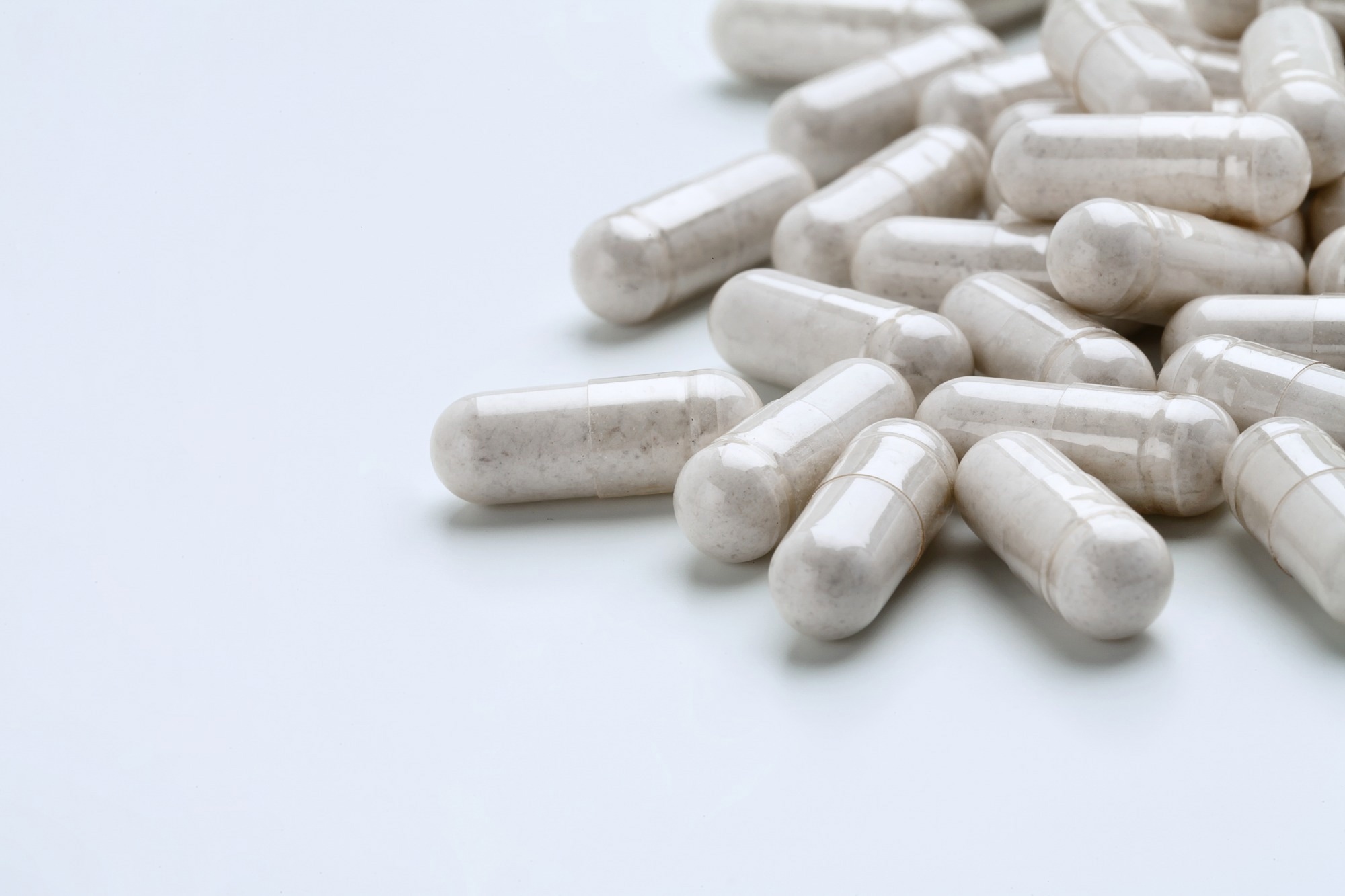The medical treatment of schizophrenia or depression is effective to various degrees; however, it is associated with potentially serious side effects, especially weight gain. Mitigation strategies have been tested, including the use of probiotics to prevent or reduce undesirable weight gain in these patients.
 Study: Are probiotics effective in reducing the metabolic side effects of psychiatric medication? A scoping review of evidence from clinical studies. Image Credit: Romariolen / Shutterstock.com
Study: Are probiotics effective in reducing the metabolic side effects of psychiatric medication? A scoping review of evidence from clinical studies. Image Credit: Romariolen / Shutterstock.com
Weight gain and mental illness
Severe mental illness is associated with abnormal weight gain resulting in a higher risk of obesity and related metabolic disorders. These include high cholesterol and sugar levels, both of which are risk factors for cardiovascular disease (CVD).
Obesity is also associated with an increased risk of cancer, diabetes, and fatty liver disease. Furthermore, this condition often results in poor adherence to medication protocols.
While these risk factors may reduce the risk of metabolic complications, they also increase the likelihood that the patient will relapse or experience a worsening of the psychiatric disorder. The outcome could be chronic psychiatric disease, with a poorer quality of life and a shorter life span.
Potential reasons for weight gain among mentally ill individuals could include low levels of physical activity coupled with poor eating habits, both of which contribute to unhealthy weight gain. Additionally, antidepressants and antipsychotics are among the most common psychiatric drug categories, both of which result in increased appetite, weight gain, and metabolic syndrome.
The effect of these drugs on brain circuits may increase an individual’s appetite or reduce microbial diversity in the gut. Earlier research has shown that weight gain and cardiovascular damage are associated with lower gut microbial diversity. These effects cannot be easily corrected by lowered total caloric intake or increased exercise, unless the microbiome is also improved, as available dietary intake may be more efficiently utilized and stored with this abnormal microbial profile.
Mental health and the gut microbiome
Mental disorders are often associated with abnormal microbial patterns, such as fewer bacteria that generate short-chain fatty acids (SCFAs), increased numbers of lactic acid producers, as well as bacteria that drive the metabolism of glutamate and the inhibitory neurotransmitter gamma aminobutyric acid (GABA).
In patients with schizophrenia, genera like Prevotella are more abundant, while Bacteroides and Hemophilus are lower in abundance. Conversely, in depression, Alistipes and Parabacteroides are often more abundant and Prevotella levels are lower. The lower the levels of Clostridia and Firmicutes, the more severe the depression is likely to be.
These effects may in part be due to the antibiotic effects of some drugs used in psychiatry, weight gain, or insulin resistance. In contrast, probiotics have been shown to improve metabolic parameters in obese individuals.
What did the study show?
In the current study, researchers reviewed studies published until June 15, 2022 that included patients with depression or schizophrenia and how weight measures, metabolic parameters, and gut microbiota were associated with probiotic use.
Four of the reviewed studies used a probiotic formulation containing Bifidobacterium, four used Lactobacillus, and three used Enterococcus. These were used in different combinations, all of which were well tolerated.
Two studies using probiotics failed to observe the usefulness of these agents in alleviating weight gain due to psychiatric drug use. One study included a mix of live Lactobacillus acidophilus, Bifidobacterium longum, and Enterococcus faecalis. Despite an initial reduction in weight gain, no differences were observed between the intervention and control groups.
Another study used a combination of Bifidobacterium bifidum, lactis and longum and Lactobacillus acidophilus; however, no difference in weight gain was observed. Nevertheless, certain metabolic markers improved in the intervention group, along with reduced inflammation as demonstrated by lower C-reactive protein (CRP) levels in the blood.
Two studies used synbiotics, which are a mix of probiotics and prebiotics. These individuals did not experience as much weight gain as those treated otherwise.
Interestingly, psychiatric health significantly improved in the intervention group during the study period. In one study, the incorporation of selenium to the probiotics enhanced the extent of improvement.
The gut microbiome was studied in one study. To this end, when both dietary fiber and probiotics were supplied, the composition of the gut microbiome was altered
What are the implications?
The application of synbiotics led to less weight gain with better metabolic markers. This could be due to alteration of the gut microbiome towards a profile that utilizes food in a healthier manner.
Dietary manipulation may help reduce weight gain induced by psychiatric drugs; however, the effect may be enhanced by synbiotics.
The augmentation with this combination during the intake of psychiatric medication might be a promising approach for further investigation. ''
Given the high tolerability and acceptance level of probiotics, as well as their potential benefits for mental disease, they are widely used as supplements for mentally ill patients receiving treatment, especially as they do not interfere with the effects of psychiatric medication.
Further research is needed to address the mechanisms by which synbiotics affect gut bacteria, weight gain, and metabolic dysregulation, as well as explore inter-individual differences in the baseline and probiotic- or drug-altered gut microbiome. Chronic psychiatric illness should also be targeted in future studies, as this is a risk factor for adverse effects.
Journal reference:
- Motteli, S., Vetter, S., Colla, M., & Hotzy, F. (2024). Are probiotics effective in reducing the metabolic side effects of psychiatric medication? A scoping review of evidence from clinical studies. Translational Psychiatry. doi:10.1038/s41398-024-02735-z.